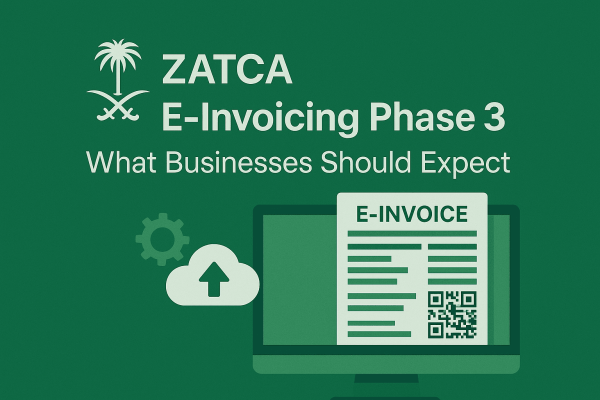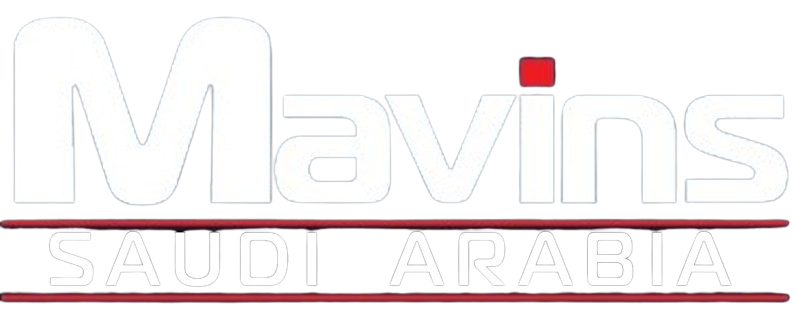
As part of its continuous digital transformation agenda, the Zakat, Tax and Customs Authority (ZATCA) is progressing with Phase 2, the integration phase of electronic invoicing (FATOORA), now advancing into Wave 3 and beyond. Here’s what firms need to know to stay ahead.
Background: From Generation to Integration
- Phase 1 (Generation) – Effective December 4, 2021, required all VAT-registered businesses to generate and store invoices electronically, in structured formats like XML or PDF/A‑3.
- Phase 2 (Integration) – Began on January 1, 2023, introducing Continuous Transaction Controls (CTC). Under this wave-based rollout, firms must connect invoice systems via API to FATOORA for real-time clearance.
Phase 2 Rollout: The Wave System
ZATCA is introducing integration in waves, each defined by taxpayers’ annual taxable revenue. Key waves so far:
| Wave | Revenue Threshold (SAR) | Effective Date |
| 1 | > 3 billion | Jan 1, 2023 |
| 2 | > 500 million | Jul 1, 2023 |
| 3 | > 250 million | Oct 1, 2023 |
| 4–14 | Gradually decreased thresholds through early 2025 | |
| 15–18 | Up to SAR 2 million, scheduled during 2025 |
Businesses must receive 6‑month notice before their relevant wave enforcement date.
What to Expect from Phase 3 (Wave 3)
For entities in Wave 3 (above SAR 250 million in taxable turnover for 2021/2022):
- Mandatory API connection to FATOORA by October 1, 2023, enabling real-time validation and clearance of B2B invoices.
- File invoices in approved formats (XML or PDF/A‑3 with embedded XML), with mandatory UUID, cryptographic signatures, timestamps, and—especially for B2C—QR codes.
- Ensure technical capability for structured storage—on-premises or cloud—but archived in Saudi Arabia.
- Receive ZATCA notifications at least six months ahead, supported by an official enforcement email.
Compliance Checklist for Wave 3 Participants
- Revenue assessment – Confirm tax thresholds for 2021/2022 to verify wave allocation.
- System readiness – Validate your ERP/POS supports FATOORA API call, XML as per ZATCA schema, cryptographic stamping, and QR code embedding.
- Integration & testing – Run test transactions with FATOORA, fix errors, and ensure uptime during issuance.
- Secure data archiving – Store e‑invoices in compliant structured format within Saudi jurisdiction.
- Staff training & support – Engage IT teams for technical stability and educate finance professionals on new CTC workflows.
- Stay alert – Watch for wave‑specific communication from ZATCA and upcoming waves (e.g., Waves 4–18 throughout 2025).
Why Phase 3 Matters
- Enhanced compliance and visibility: Data is cleared and validated instantly with ZATCA, supporting VAT reporting and audit-readiness.
- Fraud reduction: Cryptographic controls deter manipulation, while QR codes increase transparency.
- Operational efficiency: Automated, near-instant validation reduces manual billing delays.
- Strategic insights: Structured invoice data can feed BI tools to analyze cash flows, customer behaviors, and trends.
Risks of Non‑Compliance
Non-adherence to Phase 2+ requirements—such as failing to connect via API, omitting QR codes, or lacking proper invoice archiving—can yield penalties from SAR 1,000 to SAR 50,000.
Moreover, system errors during issuance must be reported to ZATCA promptly to avoid further fines.
Action Plan for Businesses in Wave 3
- Conduct a technical and compliance gap analysis against FATOORA specs.
- Partner only with ZATCA-authorized solution providers.
- Begin integration and testing at least six months ahead.
- Document workflows, exceptions, and fallback procedures.
- Educate stakeholders across finance, IT, and operations on e‑invoicing mandates.
- Monitor upcoming waves 4–18 to plan transitions as your volume decreases thresholds.
In Summary
Phase 3 (Wave 3) of Saudi Arabia’s e‑invoicing initiative mandates real-time, API-driven invoice clearance by October 1, 2023, for high-revenue taxpayers. It represents a shift toward more transparent, efficient, and data-driven transactions. Businesses that invest in solid integration now will benefit from reduced risk, smoother audits, and strategic operational insights.
Need help evaluating your readiness or integrating systems? Mavins Saudi Arabia is here to support—from gap analysis to implementation and compliance assurance.
